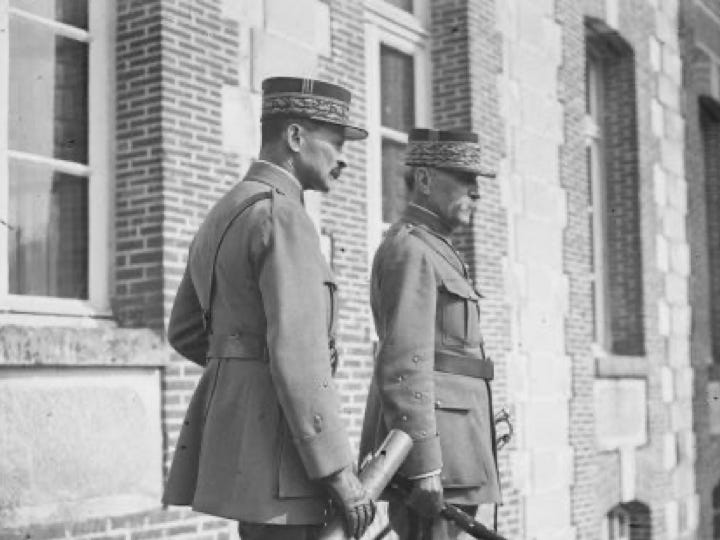De Minima Non Curat (III B)
The Modern Military Commander
This post belongs to a long series. To read the parts that precede it, and those that follow, please use this display link.
Georg Wetzell
Actual War and the Military Commander of the Future
(Continued)
Contrary to Foerster, I hold the view that the 'modern military commander', like the old Moltke, should play an occasional game of whist or bridge, as one of our most prominent army commanders had the habit of doing, if that is the kind of mental relaxation he needs. Apparently, it was a good idea that the French Generalissimo Joffre, a man with nerves of steel - Liddell Hart calls him the 'nerve tonic of the Entente' - habitually retired at 10:00 PM and would permit nobody to call on him after that hour.
While that may be going a little too far, the better care the responsible commander-in-chief takes of his physical welfare, the more it will benefit his mental capacity. He will do well to heed the words of the ancient Roman: 'Minima non curat praetor' ['The leader need not concern himself with trifles.]
Foch assigned as many of his duties as possible to his chief of staff and confidant, (Maxime) Weygand. Speaking from my own World War experiences, I venture to say that it wold have been well for us to have done likewise from the beginning of the War.
Immediately upon outbreak of war, the military commander of the future will face the most difficult problem of the World War: the breach of a line of positions, which nowadays consists of permanently fortified frontier zones. Again I cannot agree with Foerster that, 'in the preparation of this highly complicated method of attack, the commander-in-chief must remain behind the front and personal reconnaissance of the terrain, not to mention the hostile situation, is superfluous and of no advantage’.
I believe that the opposite is true.
In this connection, I should like to refer to the activities of the third High Command in the winter of 1917-1918, when it was making preparations for the great spring offensive of 1918. Without a personal general acquaintance with the probable zone of combat, without close personal collaboration with the responsible subordinate commanders and with out due consideration of their requests and opinions, provided time permits all this, such a tremendously difficult task as the attack and defense of a modern zone of positions cannot be successful.
To be continued …
This post belongs to a long series. To read the parts that precede it, and those that follow, please use the following display link.




